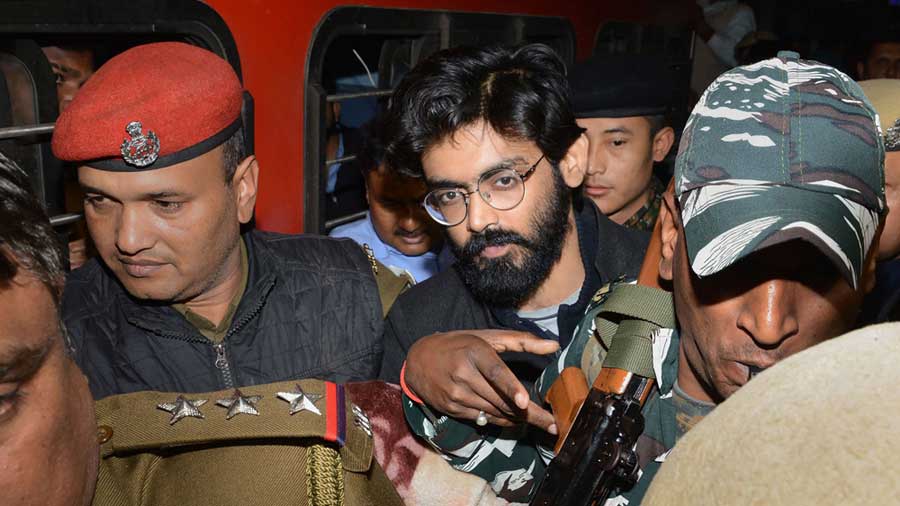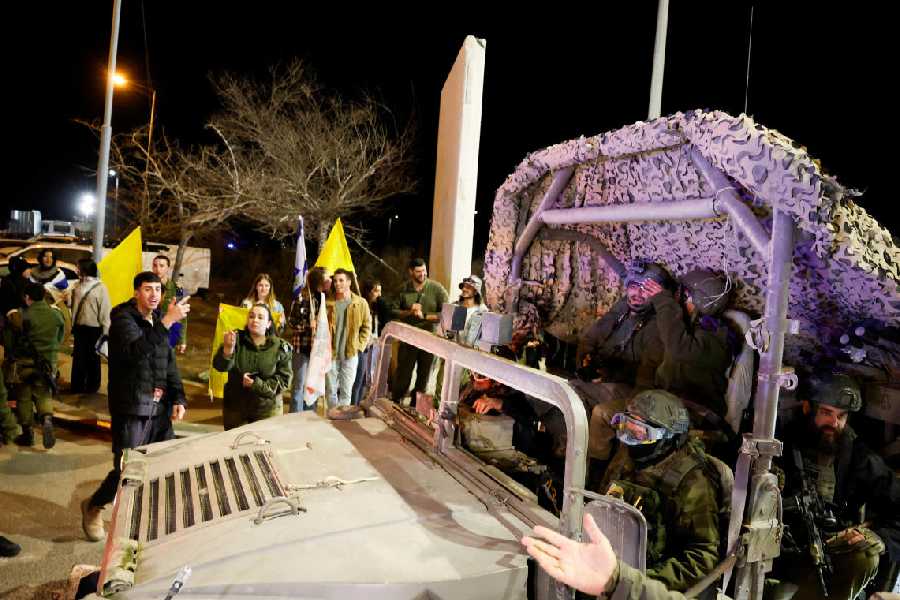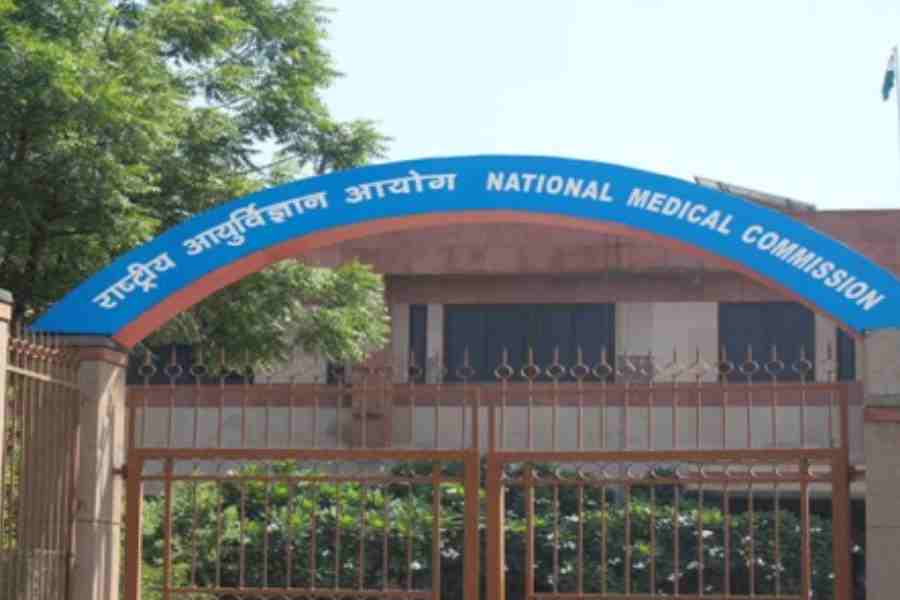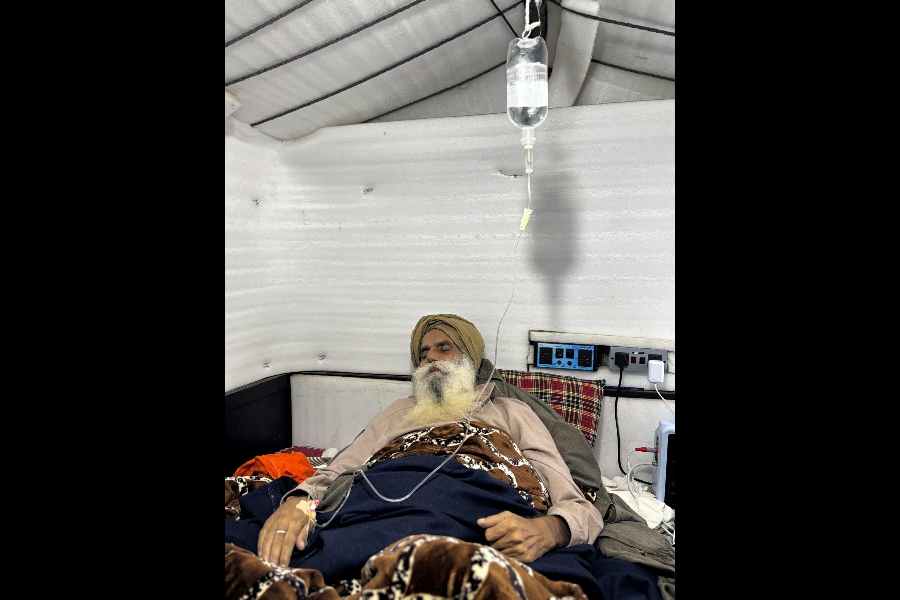The Supreme Court on Thursday expressed astonishment that the colonial-era sedition law had not been repealed yet and prodded the Centre to scrap it, indicating it would otherwise go on to decide the provision’s constitutional validity.
Chief Justice of India N.V. Ramana appeared to endorse the allegation by the government’s critics that the provision was being increasingly misused to silence dissent. “If some party doesn’t want to hear the voice of other party, they may use this type of law and implicate other people.”
Justice Ramana underlined that the Narendra Modi government had repealed several archaic laws (about 200) and wondered why the sedition law had survived.
“Mr Attorney-General, is the sedition law of colonial times, which was used to suppress the freedom movement, still needed 75 years after Independence?” he said.
Justice Ramana cited how the British had used the sedition law — Section 124A of the Indian Penal Code — against Mahatma Gandhi and Bal Gangadhar Tilak.
“The government has been taking out stale laws from the statute books — then why has this law not been considered?”
Justice Ramana underlined that conviction rate under this section is very low.
“The alarming numbers of misuse can be compared to a carpenter who has been asked to use a saw to cut a tree but he goes on to cut down the entire forest,” he said.
“It’s a serious question for individuals. There may be cases where some factionist may use the law against his opponent,” he added.
Accountability worry
Justice Ramana also broached the subject of the executive continuing to invoke laws struck down by the apex court as unconstitutional, citing the instance of Section 66A of the IT Act that criminalised “objectionable” content.
“Take the 66A IT Act. Thousands of cases are registered even after (the provision) being struck down. If any policeman wants to fix somebody he can invoke 124A. Also, today everybody is a little scared when this section is invoked. These are all issues which need to be looked into,” he said.
“Our concern is misuse of the law, and there seems to be no accountability of the executive.”
The bench, which included Justices A.S. Bopanna and Hrishikesh Roy, told attorney-general K.K. Venugopal and solicitor-general Tushar Mehta, appearing for the Centre, that it would like to have the government’s views on the matter.
Venugopal urged the court not to strike the law down and, instead, individually segregate the cases of misuse and lay down guidelines to prevent such misuse.
But the top court issued a formal notice to the Centre on the separate petitions moved by Major General (retired) S.G. Vombatkere and the Editors Guild of India challenging the constitutionality of the sedition law.
On July 12, another bench headed by Justice U.U. Lalit had sought the Centre’s response to a similar petition filed by two journalists from Manipur and Chhattisgarh, both booked for sedition.
Clubbing plea
Venugopal referred to the July 12 order passed by the other bench that had sought the government’s response and was slated to hear the matter on July 27. He suggested the present petitions be clubbed together with the other petition.
Justice Ramana said the bench would examine whether the petitions should be clubbed.
Advocate P.B. Suresh, appearing for Vombatkere, argued against clubbing, saying his client’s case stood on a different footing.
Vombatkere’s plea is that despite the five-judge Kedar Nath Singh verdict of 1962 upholding the constitutional validity of Section 124A, the challenge survives because the 11-judge decision in R.C. Cooper (1970), the nine-judge ruling in Justice Puttaswamy (2017) and various other constitution bench judgments had upheld free speech and privacy as fundamental rights.
Senior advocate Shyam Divan referred to the Editors Guild’s petition, saying it had not just challenged the sedition law but detailed its increasing misuse.
Justice Ramana said the bench would examine all the sedition cases pending with the apex court and, if necessary, place them all before a particular bench.
He also remarked that Vombatkere’s petition could not be taken lightly.
“The petitioner is somebody who has sacrificed his whole life for the country for his service. We cannot say it is a motivated petition,” he told Venugopal.
Vombatkere’s petition, filed through advocate Prasanna S, has argued that the sedition law runs counter to Article 19(1)(a) of the Constitution (freedom of speech) read with Articles 14 (right to equality) and 21 (right to life and liberty).
Against the 1962 judgment upholding Section 124A, he has cited not just the 1970 (R.C. Cooper) and 2017 (Puttaswamy) judgments but also Indira Gandhi v Raj Narain 1975 (five judges), Maneka Gandhi v Union of India 1978 (seven judges), and I.R. Coelho v State of Tamil Nadu (2007).
Mehta said the government would submit a detailed response. “Once you receive our reply, your Lordships’ workload would be reduced.”











